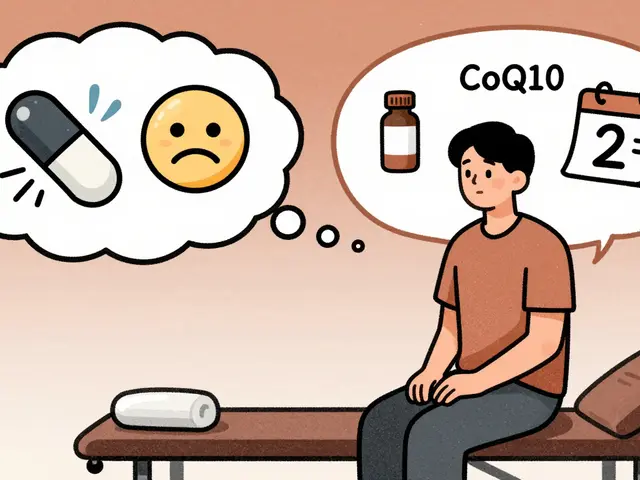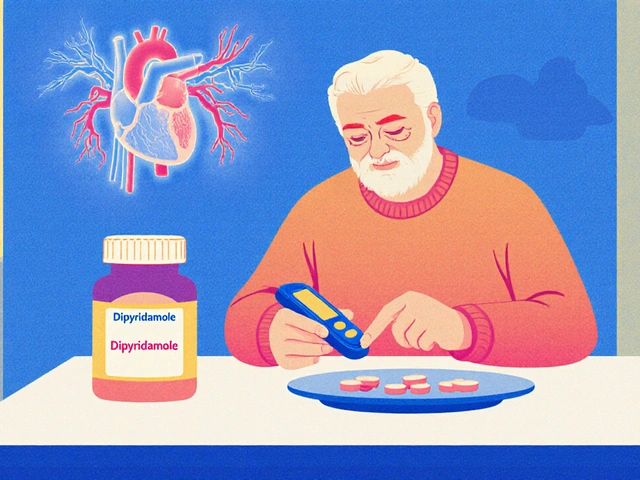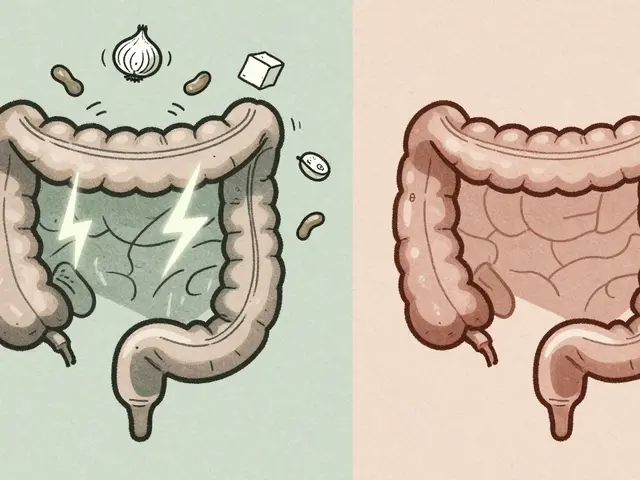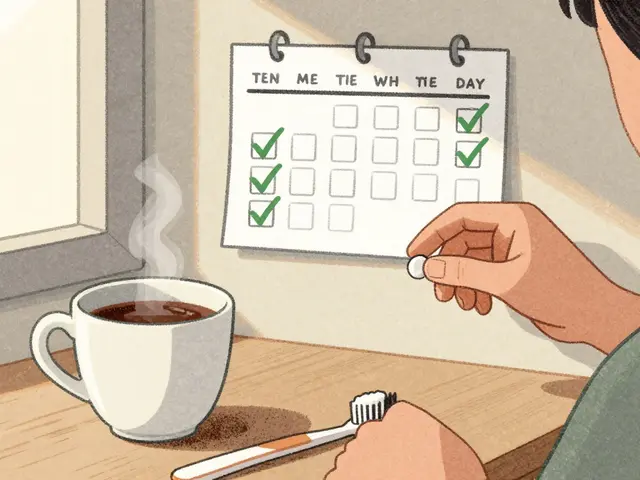Prevent: Practical Health Tips to Lower Risks
Want to avoid common health problems and medication surprises? Small habits and smart choices cut risk a lot. Below are clear, practical steps you can use today — for medicines, supplements, and everyday prevention.
Prevent Medication Risks
When you buy medicines, safety comes first. Use pharmacies that show a valid license, a real address, and require a prescription for prescription drugs. Check for secure site indicators (https and a lock icon) and read recent customer reviews. If a price looks too good to be true, the products might be fake.
Track side effects. Keep a short list of every drug and supplement you take and note new symptoms. If you’re on long-term drugs like Glipizide or Accutane, schedule regular check-ins with your doctor and labs. Know common red flags: fainting, sudden weight change, severe rash, breathing trouble, or new mood shifts. Those need urgent contact with a clinician.
Switching meds? There are clear signals: worsening control of your condition, repeated side effects, or dangerous interactions. For example, blood sugar drugs can cause low sugar episodes; if that happens often, ask your provider about alternatives and a taper plan. Always follow a prescriber’s guidance when changing doses or stopping a drug.
Daily Steps to Prevent Illness
Basic habits prevent a lot: sleep well, move regularly, and eat a few whole-food meals each day. Immunity and mood respond fast to sleep and protein. Add proven supplements only when they fit your needs — omega-3s, rhodiola, or SAM-e can help mood for some people, but talk to your clinician before starting, especially with antidepressants.
Prevent infections by following simple rules: wash hands, avoid close contact when sick, and follow travel advice for places with malaria or other risks. If traveling to malaria areas, know the recommended prevention drugs and how combinations like clindamycin are used in treatment plans — not as DIY fixes.
Watch for recalls and safety alerts. Drugs such as ranitidine (Zantac) faced recalls for contamination; staying informed helps you switch safely to alternatives. Use trusted sources for updates: official health agencies, major medical centers, or reliable pharmacy pages.
Finally, be skeptical but not scared. Ask questions: Who made this product? Is my dose right? Do I need lab tests? Clear answers help you prevent harm and keep health care working for you. When in doubt, contact a trusted clinician or use licensed pharmacy services for guidance.

- Jul 31, 2023
- Posted by Cillian Osterfield
How to Prevent Ear Canal Infections While Traveling
Alright, folks, let's dive headfirst into the fun, yet oddly specific world of ear canal health while globe-trotting. Bet you didn't see that one coming, right? So, first things first, keep those ears dry - dampness is a bacteria's pool party. Also, try to refrain from poking around in there with cotton swabs, it's like poking an anthill with a stick, it only stirs up trouble. And last but not least, consider using earplugs when swimming. Who knew ear health could be such an adventure? Safe travels, and may your journey be free from ear canal infections!
Categories
- Health and Wellness (72)
- Medications (69)
- Health and Medicine (28)
- Pharmacy Services (12)
- Mental Health (9)
- Health and Career (2)
- Medical Research (2)
- Business and Finance (2)
- Health Information (2)
Latest Posts
©2026 heydoctor.su. All rights reserved





